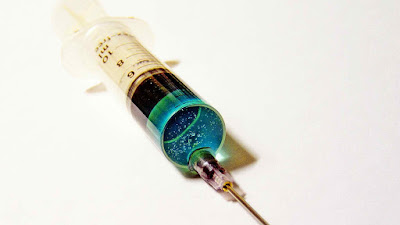A New Drug Can Treat Blood Cancer Patients More Effectively, Says Nirmal Singh 3C
Researchers have been analysing data from various patients, 269 AML to be precise, and found that the survival rate of the patients improved through the activity of HOX genes.
The problem with cancer cells is that they are immortal if you can make them mortal, the cells, then you can treat even the most aggressive forms of cancer. Scientists in London have brought out a new drug that creates that situation – it makes the cancer cells mortal.
The drug, which is being called HXR9, disables the cancer cells from making the unhealthy cells in the patient’s body to die. Sidestepping apoptosis is what the process is called when cancer cells start affecting the damaged and unhealthy cells in the body – the new drug prevents the cells from doing that. - Nirmal Singh 3C
Researchers from London found that the drug can be effectively used to treat AML and other forms of Leukemia. The drug has been this successful in the trail period as it specifically targets the HOX genes that are responsible for controlling the rapid growth of healthy cells in the body. - Nirmal Singh 3C
HOX genes are responsible for making the cancer cells rapidly multiply – they trigger apoptosis by acting as a catalyst to the multiplying mechanism, making them immortal in the process.
AML has always been regarded as an incurable form of Leukemia that doesn’t respond to many drugs and treatments. This new research has opened doors for doctors to see it as something that can be cured if the apoptosis can be taken out of the picture. The drug has shown tremendous promise at this early stage and has been effective against AML, said Nirmal Singh 3C
The drug was tested on cancerous cells that were taken from patients suffering from AML and it was found that the drug actually makes the cancer cells undergo the reverse process of apoptosis. The cells explode and dissolve themselves in the bloodstream of the person rather than multiplying and making things worse for the body.




Comments
Post a Comment